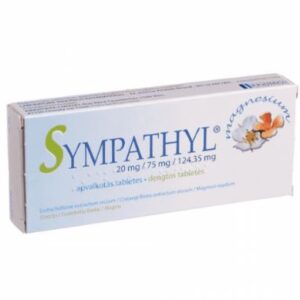What are Loratadine tablets used for?
Loratadine tablets are a non-drowsy antihistamine suitable for children (from 2 years old) and adults. They help treat symptoms caused by mild to moderate allergic conditions, such as hay fever, skin reactions (hives), pet and dust mite allergies, insect bites, and mild food allergies. Common allergy symptoms include sneezing, runny nose, itchy nose and throat, watery eyes, and skin rashes.
How does Loratadine work?
Loratadine is an antihistamine that blocks the substance histamine in the body. When the body comes into contact with allergens, it naturally produces histamines, causing inflammation and irritation in the eyes, nose, and skin. Loratadine prevents this reaction, providing relief from allergy symptoms.
Is Loratadine drowsy?
Loratadine is a non-sedating antihistamine designed to minimize drowsiness. While it doesn’t cause drowsiness in most people, some individuals may experience sleepiness. It is recommended to wait until you feel alert before driving or operating heavy machinery while taking medication.
Important information and precautions:
Before taking tablets, carefully read and understand the warnings and precautions in the Patient Information Leaflet. Consult a doctor or pharmacist if you have liver conditions or if you’re taking other prescribed or non-prescribed medications. Avoid taking Loratadine tablets for 2 days before a skin prick test for allergies. If you’re pregnant, breastfeeding, or have questions about Loratadine and alcohol, seek advice from your healthcare professional.
Dosage:
For children and adults over 2 years old, take one 10 mg tablet orally with water once a day. Ensure you have read and understood the information provided in the Patient Information Leaflet before taking Loratadine.
Possible side effects:
it may cause side effects, although not everyone experiences them. Stop taking the tablets and contact your doctor immediately if you notice signs of an allergic reaction or any severe symptoms. Common side effects include drowsiness, headache, increased appetite, and difficulty sleeping. In children aged 2 to 12 years, common side effects include headache, nervousness, and tiredness. Rare side effects include dizziness, convulsions, fast or irregular heartbeat, nausea, dry mouth, upset stomach, liver problems, hair loss, and tiredness. The frequency of weight gain as a side effect is unknown. If you experience any side effects, discuss them with your doctor, pharmacist, or nurse.




Reviews
There are no reviews yet.